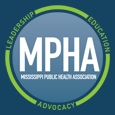Keywords
American Indian, COVID-19, rural, in-hospital mortality, health disparities
Document Type
Research Studies
Abstract
Background The COVID-19 pandemic has highlighted health inequities among indigenous populations, with those in rural settings facing compounded barriers.Purpose To investigate morbidity and mortality experiences among hospitalized, COVID-19+ American Indian adults from rural and urban settings.Methods The described cross-sectional study used retrospective discharge data from the University of Mississippi Medical Center and Hennepin County Medical Center. Adults (≥ age 18) admitted from January 1, 2020 to August 8, 2021with a COVID-19 diagnosis and known race were included.Results A total of 3,659 inpatients met inclusion criteria. Among adults hospitalized with COVID-19 at the University of Mississippi Medical Center, American Indians (n=73) had the highest mean comorbidity risk score (11.2, SD 8.1) and unadjusted mortality rate (42%) among all races. Among adults hospitalized with COVID-19 at Hennepin County Medical Center, American Indians (n=62) had the second lowest comorbidity risk score (6.1, SD 10.7) and the lowest unadjusted mortality rate (6%). American Indian mortality disparities persisted after controlling for age, sex, and comorbidity risk.Conclusion Hospitalized American Indians from predominantly rural settings experienced significant morbidity and COVID-19 mortality disparities when compared to native persons in predominantly urban environments, or Blacks and Whites in either setting. Compounded disparities faced by rural, indigenous populations must be addressed.
Recommended Citation
Musshafen, L.,
Dobbs, T. E.,
Robinson, A.,
Wyatt, T.,
Puskarich, M.,
Summers, R.,
Lirette, S.,
&
Compretta, C.
(2022). American Indians and COVID-19: Morbidity and Mortality Disparities among Indigenous Populations in the Rural South.
Journal of Public Health in the Deep South, 3(2), 4.
DOI: https://doi.org/10.55533/2996-6833.1035

